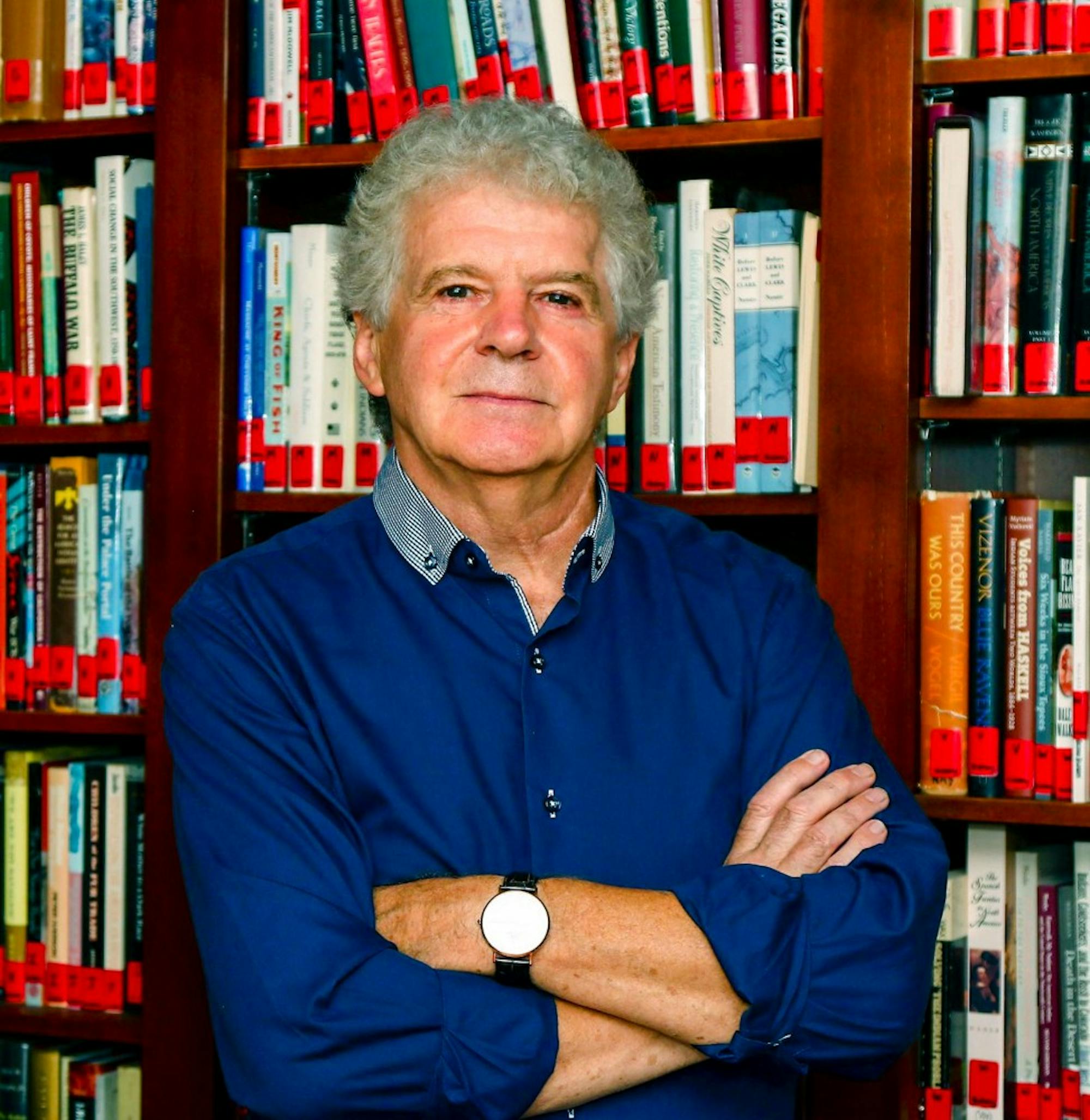Known for his scholarly work in the field of Native American history, Native American studies and history professor Colin Calloway was recently awarded the George Washington Prize for his 2018 book “The Indian World of George Washington.”
The prize, which includes a $50,000 monetary award, is given out annually by Washington College, the Gilder Lehrman Institute of American History and George Washington’s Mount Vernon to honor works about George Washington and the Revolutionary era. Winning works — for example, Lin Manuel-Miranda’s Broadway hit “Hamilton” in 2015 — should also “reach a broad, non-scholarly public audience,” according to the prize’s website.
“It’s extremely gratifying,” Calloway said of winning the award. Noting the substantial sum awarded — larger than most awards for books about history — he added that “it’s both an honor … but also quite humbling.”
In addition to the George Washington prize, the book has also won the Excellence in American History book award from the National Society of the Daughters of the American Revolution.
Calloway said that he is particularly pleased with both of these awards because, as he put it, both the Daughters of the American Revolution and Mount Vernon might be resistant to a work that portrays Washington in a negative light.
“It looks at George Washington’s role in stealing Indian land … and, in addition, his campaigns against the Iroquois,” Calloway said. “People who are Washington-worshippers might be very resistant to it.”
He said that the intention of the book was to reach those who might not otherwise read about Native American history and provide a “well-rounded” look at Washington, not to “trash” the first U.S. president.
“The idea of the book, of course, was to use George Washington as a vehicle to show that Native America and Native Americans mattered in his life,” Calloway said. “If they mattered in the life of the man who created the nation, then they mattered in the life of the nation.”
Calloway noted that he previously taught a class about the topic for several years, a class made possible by the public nature of many of Washington’s records.
“A lot of what we do in Native American studies is find and identify a Native American presence, a Native American or indigenous interpretation of events,” Calloway said. “What I decided to do here was use the deadest white guy imaginable, George Washington, and reveal how there are Indian stories or Native American strands running through even his life story.”
He added that it is important to include Native American contributions to history.
“The story we are already telling doesn’t make sense if you do not include Native Americans,” he said.
Alex Rounaghi ’20, a history major currently taking Calloway’s class NAS 14, “The Invasion of America: American Indian History Pre-Contact to 1830,” said Calloway’s lectures are consistently engaging and that the class has shaped how he thinks about American history.
“His lectures on the history of Dartmouth and its connections to Native Americans have been fascinating,” Rounaghi noted. “I like how Professor Calloway uses so many examples from his own experiences as a historian to explain events.”
NAS professor N. Bruce Duthu praised his colleague’s work via email, calling Calloway “an inspiration to scholars everywhere.”
“His award-winning scholarship is a huge reason our program is so well-regarded nationally,” Duthu wrote.



